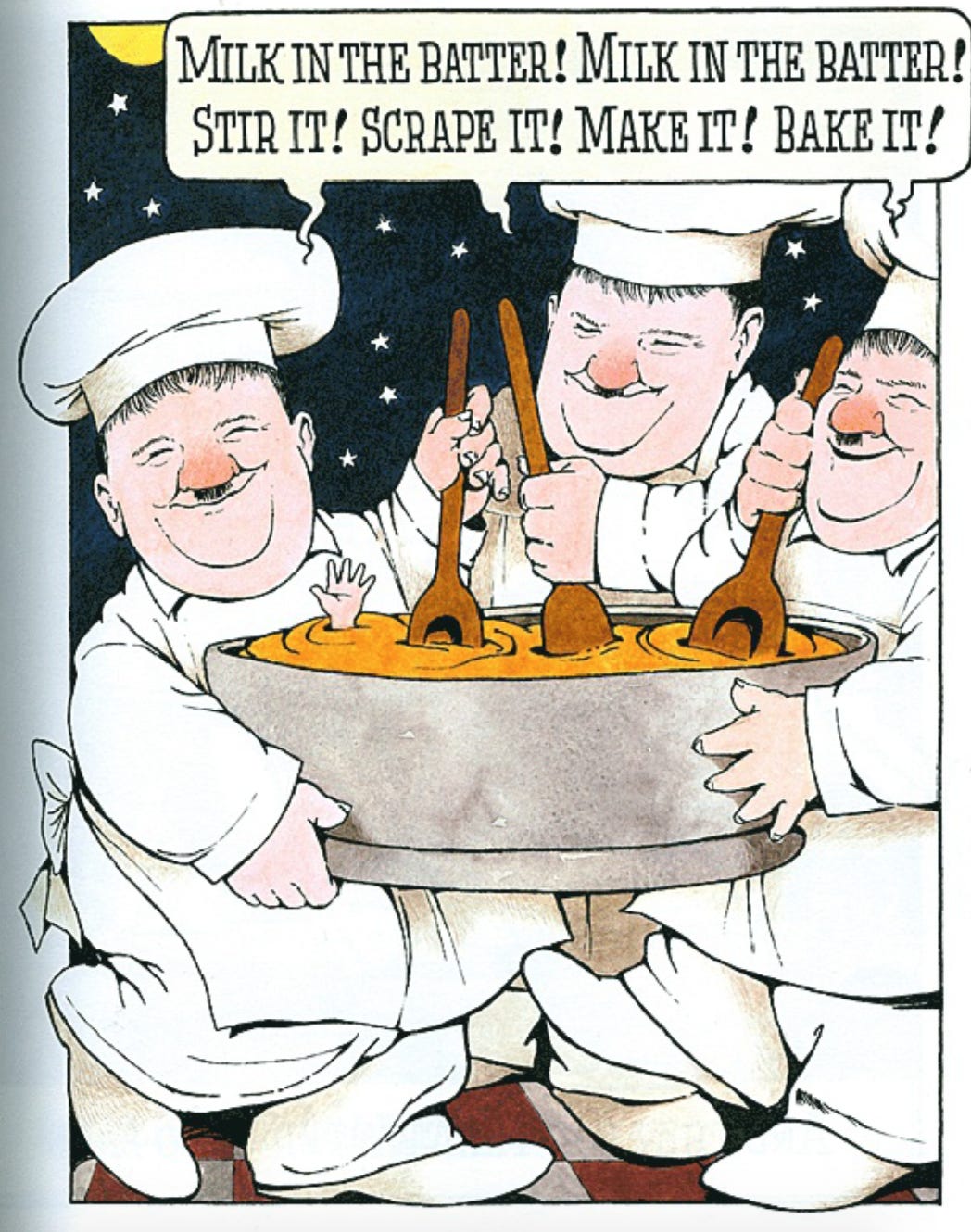In the Night Kitchen
"In the Night Kitchen" by Maurice Sendak opens with a relatable scene to any child.
"Thump, Dump, Clump, Lump"
A young boy, Mickey, awakes from a noise.
Mickey in a rage shouts, "Quiet down there!"
What could that noise be?
When you consider Sendak's upbringing by Jewish immigrant parents filled with survivor's guilt of which his parents inculcated in him, you can't help but notice the many connections to the Holocaust.
Mickey awakes in a bedroom that appears to be a dark attic or perhaps a secret annex. In his pajamas that resemble the uniform worn in concentration camps, he is thrown into a whirlwind and stripped naked like the victims of the Holocaust. As he is falling, he is juxtaposed against the pale yellow moonlight, possibly a parallel to the pale yellow Star of David the Jews were required to wear.
Mickey calls for his "Mama! Papa!" as if he was separated from them just like children of the Holocaust.
Then he arrives in the night kitchen where three chefs with Hitler mustaches are baking.
Mickey falls into the batter.
The chefs sing, "Milk in the batter! Milk in the batter! Stir it! Scrape it! Make it! Bake it!" It's as if the Nazis are taunting a victim. You can easily replace the word "milk" with "Jew".
"And they put that batter up to bake a delicious Mickey-cake."
The chefs or Nazis are about to put a child into the oven, just when, "Mickey poked through and said, I'm not the milk and the milk's not me! I'm Mickey!"
It's hard to imagine a children's story about a child going into an oven, but Sendak received a Caldecott Honor for this book.
Sendak recounted in an interview, "If I was staying out late and dinner was on the table and I'd been called three times, I was playing stoop ball or something outside in the street, my mother's voice would tell me that I'd better go up now. And I'd go up. And she'd say, 'Your cousin, Leo, you know they're your age. They don't play ball. They're dead. They're in a concentration camp. You have the privilege of being here. And you don't come up and eat? They have no food."
This guilt created demons in Sendak that lived with him into old age. He recounted at age 75 in a conversation with Bill Moyers, "It was so cruel of my parents. It constantly made me feel that I was shamelessly enjoying myself when they were being cooked in an oven."
The story continues in a fight to escape the oven, "He kneaded it and punched it and pounded and pulled."
Mickey turns the cake into a propeller plane that appears to be an American plane, escaping the oven.
Later the chefs chant, "Milk in the batter! Milk in the batter! We bake cake! And nothing's the matter!" Is this their Nuremberg defense? We're just following orders. We're just baking cake. That's our job, even if there is a child that's going into the oven.
The story closes with a cry of happiness.
"And slid down the slide"
"Straight into bed"
"Cakefree and dried"
Mickey is back home after this night terror and Sendak uniquely uses the word "cakefree", perhaps a final allusion to Mickey escaping and finding freedom.
While the Holocaust had a indelible impact on Sendak's life, it seemed it left an impression to appreciate and live life. A few months before Maurice Sendak's death, he told Terry Gross of NPR, "I wish you all good things. Live your life, live your life, live your life.''





